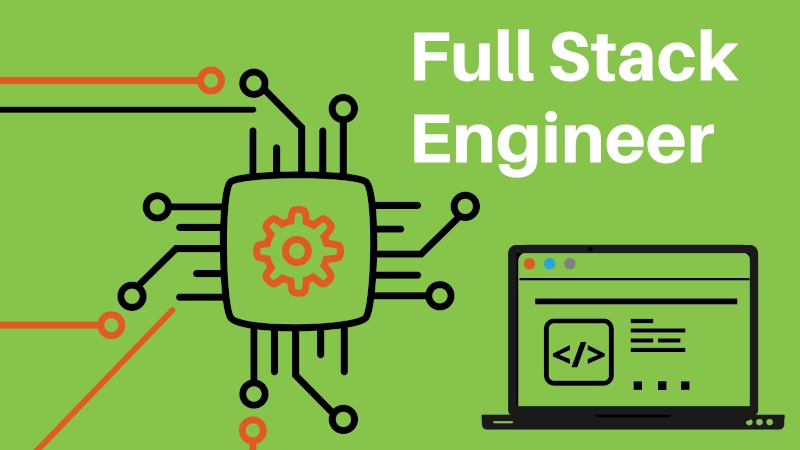
The term Full Stack Engineer can be used to describe programmers of many technology stacks, but usually, there is a certain dependency – skills are grouped, namely, every Full Stack Engineer should know backend and frontend languages and technologies – and in this matter, you can list several groups of programming and coding languages, the marriages of which are most desired.
How is a Full Stack Dev different from a Full Stack Engineer?
Both terms function among recruiters of programmers looking for people who will be able to handle a wide range of activities. In theory, a Full Stack Engineer is a programmer who can not only freely navigate the frontend and backend but can also create strategies and manage projects related to the development of the frontend/backend in connection with server structures. However, for recruitment purposes, the terms Full Stack Dev and Full Stack Engineer often function interchangeably, so if you need an all-around programmer, it is best to search using both terms.
In the recruitment process, a Full Stack Engineer is often considered a person with at least 3-5 years of work experience. Of course, these are just numbers, and a person with so many years of work in the profession may never have jumped beyond the knowledge of the basic technology stack.
What should a Full Stack Engineer know?
What are the most popular technology stacks?
Every Full Stack Engineer should be able to navigate freely in the area of at least one technology stack. This specialization is related to technologies that cooperate with each other. A technology stack consists of: an operating system, server software, database, and programming language. From the names of these four data, stack acronyms were created:
There are also other stacks based on popular frameworks:
Summary
Full Stack Engineer or Full Stack Dev are terms that are separated by a very narrow, constantly shifting border, as the number of specialists increases, and their skills are broader. The demand for employees who will be able to jump between tasks is enormous, therefore it is worth expanding your knowledge and not focusing on one technology. If you are looking for a person who will combine frontend and backend knowledge with server and project management, you definitely need a Full Stack Developer called Full Stack Engineer.



